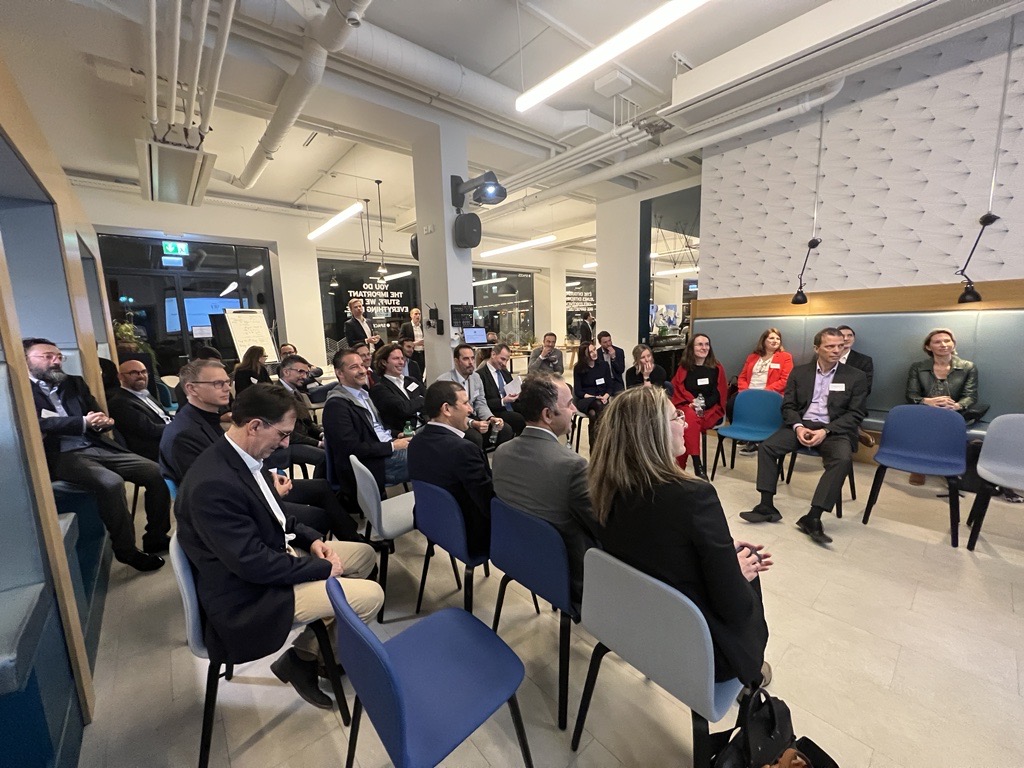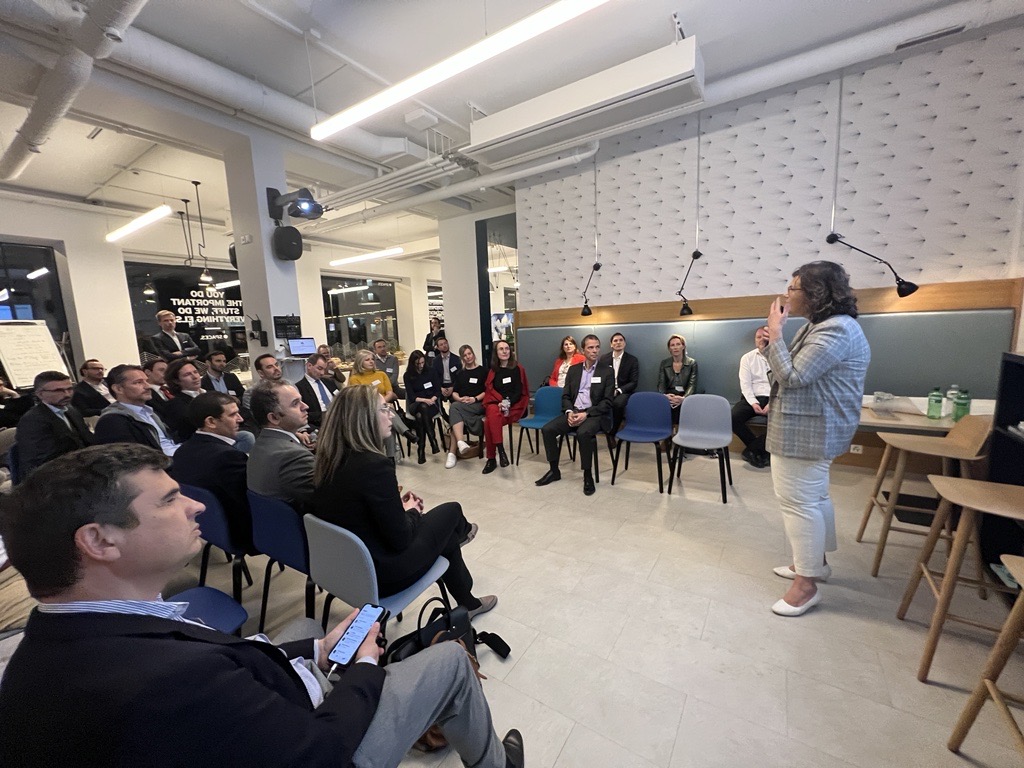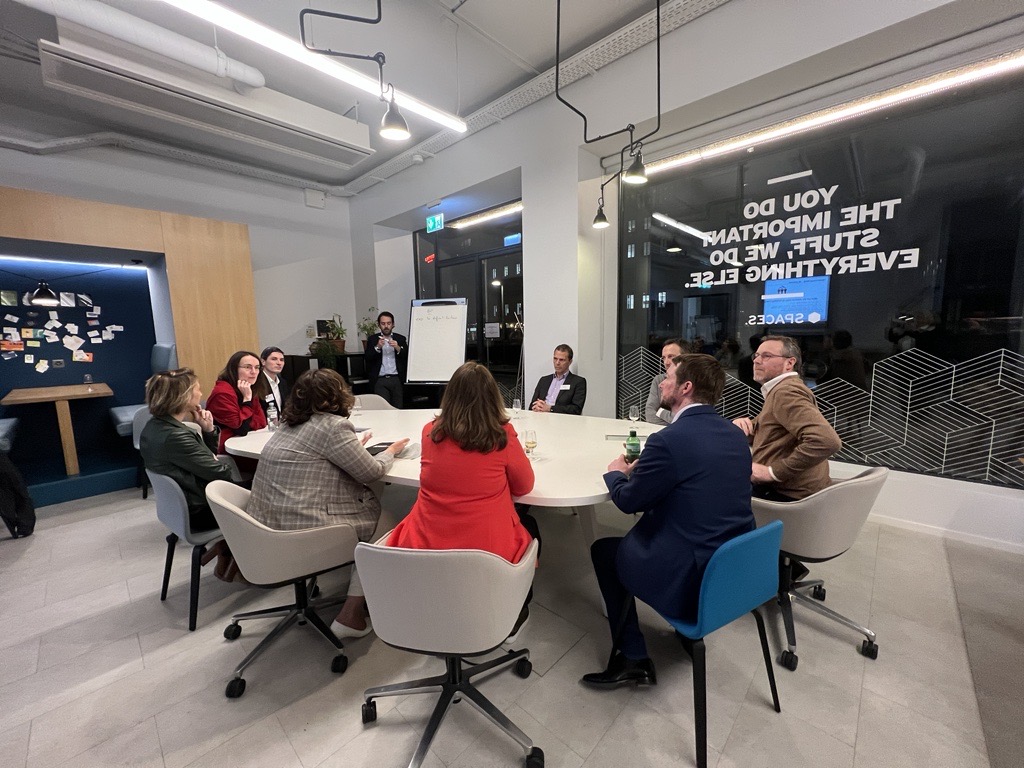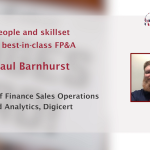The London FP&A Board met on 26 January 2023, attended by senior FP&A practitioners from diverse...
31 experienced finance professionals gathered for the 14th in-person edition of the Geneva FP&A Board. It was held on 7th February 2023 in the beautiful co-working office of SPACES in the city centre of Geneva.

Figure 1: Participants of the Geneva FP&A Board (February 2023)
This time the finance practitioners focused on the Five Critical Roles for Building a World Class FP&A Team. The usual intensity and fruitfulness of the discussion were further fuelled by several first-time participants from major international companies based in the French part of Switzerland. Larysa Melnychuk, Managing Director at International FP&A Board, chaired the meeting.
Five Critical Roles for Building a World-Class FP&A Team
Skills for the future: Building the best-in-class FP&A team
The discussion kicked off with providing feedback on "What is the most important skill of a modern FP&A professional in 2023?". The opinions were as diverse as the background and business areas of the participants. According to Tijana Balotic Truong, Business Model Manager at JTI, it is storytelling, but numerous other suggestions, such as data, cash, and inflation management, were also heard. Following the presentation of Larysa Melnychuk of the Top 7 trends shaping the FP&A in 2023, the finance professionals continued elaborating further on the question, "How can we remove all non-value-added activity tasks?". According to Pasquale della Puca, VP Finance High Growth Markets at Beckman Coulter Diagnostics, there is a real challenge with ensuring resources for transactional accounting, which makes it difficult to feed and support the role of a Data Scientist.

Figure 2: The Geneva FP&A Board Members
Tijana Balotic Truong thinks that it is through developing a combination of skills and not only by one of them. Hakan Ekinci, Head of Centralized Operations at QNB Group, expressed the opinion that it can be achieved by developing finance professionals with good technical skills who can be taught storytelling capabilities.
FD at the Economist shared an example of a former colleague in London who was a great communicator (storyteller) even with the help of an interpreter.
The team then moved into a discussion about the Five FP&A Team Roles. Although technical, the first three of them generated an intense discussion amongst participants, probably to their traditional roots.
Roles
Analyst
Being the oldest and most traditional role, there was no divergence in the opinions of the Board that analysis & reporting, developing models, supervising Planning & Forecasting processes, and projects & investment evaluation will continue to be at the core of the FP&A profession.
Data Scientist
Understanding how this role bridges Finance and Data Science functions was interesting. Answering a question from the presenter, it turned out that the companies of the 3-4 participants in the meeting had already been using data science and had such a role. FD at Tropicana Brands Group said it is a great experience to have a data source to exploit this role.
As per Tijana Balotic Truong, utilising Artificial Intelligence (AI) necessitates a change in the mindset since, in this case, deviations of actual figures vs AI forecast cannot be explained. This can lead to an unsatisfied management team.
As per Global Fabric and Home Care Innovation Strategy at Procter & Gamble, in P&G, there is more focus on Data Science, and the role reports to Finance. In addition, there is a need to enhance the status of this position to reflect its added value fully.
According to the Head of Financial Planning, Reporting & Analysis at Puma Energy, companies need to have team members with dual skills in both data and finance.
FP&A Architect
The increasing importance of Digital Transformation brings to the focus the FP&A Architect's role as a connector between Finance and IT, enabling systems architecture and harmonising planning processes.
In the opinion of Country Manager Switzerland CCH Tagetik, there is a big need but also a scarcity of professionals bridging the roles of Data Scientist and Architect. Also, according to him, it is a bit early to see AI/ML incorporated into the ERP during the new implementation.
Director of Michael Page Geneva shared that these skills are not yet offered in the recruitment market despite the demand.
Corinne Talichet Herber, Director FP&A Transformation at Galderma, pointed out that the most important areas are business acumen and understanding data. While data could be delivered from an external provider, its analysis can only happen in-house.
The analysis was concluded by elaborating more on the last 2 "soft" roles.
FP&A Storyteller
This new role delivers compelling insights and visualisation to support the story. Tijana Balotic Truong made a beautiful analogy between storytelling and creating literature in various genres – novel, poem, and haiku to demonstrate that storytelling is not only about delivering a message but, more importantly, about steering the audience towards what is important from an FP&A point of view. Also, in light of this role, it is important not to ask the finance team to perform too many analyses as they become partly obsolete with good storytelling.
Pasquale della Puca suggested that when there are figures in red on the board of the main KPIs of the company, storytelling shall be employed so that the blame discussion turns into actions instead.
FP&A Influencers
The newest of all FP&A roles, the Influencer generates diverse perceptions and expectations in various stakeholders. However, the focus should be building upon expertise with information and analytics and achieving goals through leadership characteristics.
The meeting continued with a presentation from Olivier Demierre, FD at Cargill, who shared his experience with FP&A roles at Cargill.
He presented the finance organisation in Cargill, where there are no roles but seven areas of skills. Three of them are soft roles:
- Proactive Partnership,
- Transformational Leadership and
- Growth Mindset.
The rest four – Risk Management, Data & Digital, Business Acumen and Financial Expertise – are technical. In Olivier's experience, the ideal FP&A team needs to have a leader, ideally multi-skilled in all 7 areas, but as a minimum in the three soft areas. In addition, the remaining team members should cover the four areas of technical skills.
In the following Q&A session, several additional aspects were clarified. Regarding how the knowledge exchange happens among the team members, Olivier answered that there is no predefined formula, and it happens naturally over time and based on the interest expressed by the people. When it comes to the length of the process of structuring the FP&A team in the described constellation, he clarified that it was, in fact, a journey which continued over the years.
Finally, answering the question, "Was there a business case prepared to promote the setup for approval?" Olivier Demierre described that there was no such case presented, but the concept was "sold" to the stakeholders by providing transparency and a clear definition of the business drivers.
At the end of the meeting, the Board moved towards Group Discussions to elaborate on the practical steps in building a modern FP&A team. The finance leaders were tasked to discuss the Leadership, Functional Skills and Business Partnering aspects of the process.
Christine Fromont, Global NS Franchise Finance Lead at Novartis, couldn't attend the meeting, but she prepared an excellent presentation about the senior finance leadership roles. She believes there are two kinds of leadership - the business one and that inspires people.
The conclusions of each group were summarised as follows:

Figure 3: Group Work During the Geneva FP&A Board (March 2023)
- Leadership
- Have a vision of where the organisation is heading.
- Ensure sponsorship for the process.
- Ensure high-level understanding/knowledge.
- Perform Resource Planning, e.g. roles, responsibilities, and needs.
2. Functional Skills
- Define action points to move from AS IS towards TO BE state.
- Fix the weakest link in the organisation.
- Data scientist plays a key role.
3. Business Partnering
- Exposure – to the business partnering environment and senior management.
- Expertise – demonstrate your value-building capabilities.
- Engagement – it is a 2-way road. Needs a change in mindset towards serving the business.
Conclusion

Figure 4: Participants of the Geneva FP&A Board During Group Work
The participants in the 14th Geneva FP&A Board meeting united around the view that many outstanding challenges are shaping the modern FP&A function to support the current needs of the business adequately. Developing the right team profiles to suit the Five Critical Roles for building a world-class FP&A Team is a challenging yet exciting journey, which requires a continuous investment in resources, governance, constant coordination, and transparent communication.
We are grateful to Wolters Kluwer for sponsoring this meeting. Thank you, IWG, Michael Page, and Page Executive, for your tremendous support with the event organisation.
Subscribe to
FP&A Trends Digest

We will regularly update you on the latest trends and developments in FP&A. Take the opportunity to have articles written by finance thought leaders delivered directly to your inbox; watch compelling webinars; connect with like-minded professionals; and become a part of our global community.







